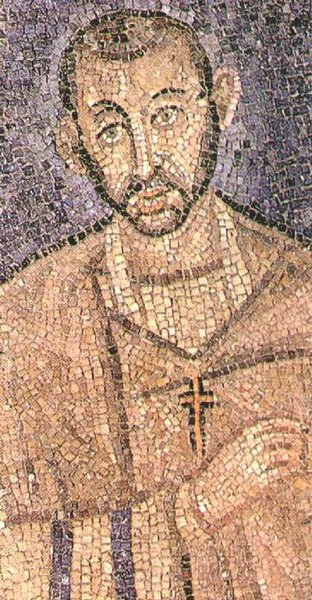Svatý Ambrož najznámejšie citáty
Svatý Ambrož Citáty o živote
Svatý Ambrož Citáty o bohu
Svatý Ambrož: Citáty v angličtine
“When I am here I do not fast on Saturday; but when I am at Rome I do”
Quoted in "Epistle to Casualanus", XXXVI, section 32, by St. Augustine; translation by J.G. Cunningham
Kontext: When I am here I do not fast on Saturday; but when I am at Rome I do: whatever church you may come to, conform to its custom, if you would avoid either receiving or giving offense.
“If you are at Rome, live in the Roman style; if you are elsewhere, live as they live there.”
Si fueris Romae, Romano vivito more;
Si fueris alibi, vivito sicut ibi.
Quoted in Ductor Dubitantium, or the Rule of Conscience (1660) by Jeremy Taylor, I.i.5; commonly rendered into a proverb: "When in Rome, do as the Romans do", or simply "When in Rome..."
in The Cry for Justice (1915), p. 397
“Accordingly, death is a harbor of peace for the just, but is believed a shipwreck for the wicked.”
De bono mortis, 8, 31.
“It is not death therefore that is burdensome, but the fear of death.”
De bono mortis, 8, 31.
“Formerly a lamb was offered, a calf was offered. Christ is offered today…and he offers himself as priest in order that he may remit our sins: here in image, there in truth where, as our advocate, he intercedes for us before the Father.”
Ante agnus offerebatur, offerebatur et vitulus, nunc Christus offertur...et offert se ipse quasi sacerdos, ut peccata nostra dimittat. Hic in imagine, ibi in veritate, ubi apud Patrem pro nobis quasi advocatus intervenit.
De officiis ministrorum ("On the Offices of Ministers" or, "On the Duties of the Clergy"), Book I, ch. 48. http://books.google.com/books?id=ZIwXAAAAIAAJ&pg=PA114&dq=%22ante+agnus+offerebatur%22&hl=en&ei=pTDSTcflDsrZ0QHjxKHYCw&sa=X&oi=book_result&ct=result&resnum=4&ved=0CDgQ6AEwAzgy#v=onepage&q=%22ante%20agnus%20offerebatur%22&f=false
In, The Eucharist in the West: History and Theology, Edward J. Kilmartin, SJ, Robert J. Daly, SJ, Editor, 1998, The Liturgical Press, ISBN 0814662048 ISBN 9780814662045, p. 19 http://books.google.com/books?id=WI2gC7lFmC4C&pg=PA19&lpg=PA19&dq=%22Christ+is+offered+today%22&source=bl&ots=MoKJXo6d2u&sig=8k0xytaJpidX3wg5RpQQKHwDxzw&hl=en&ei=hi_STbuzOYq_0AHwxKXKCw&sa=X&oi=book_result&ct=result&resnum=2&ved=0CBwQ6AEwAQ#v=onepage&q=%22Christ%20is%20offered%20today%22&f=false
Alternate translation: In old times a lamb, a Calf was offered; now Christ is offered. But He is offered as man and as enduring suffering. And He offers Himself as a priest to take away our sins, here in an image, there in truth, where with the Father He intercedes for us as our Advocate. http://www.newadvent.org/fathers/34011.htm
As quoted in Many Thoughts of Many Minds (1896) edited by Louis Klopsch
“But it is not only of the space in the Church which we ought to be jealous, but also of the interiors of the house of God in us, so that it might not become a house of merchandise, or a den of robbers.”
Sed non solum locum Ecclesiae zelare debemus, sed hanc quoque interiorem in nobis domum Dei; ne sit domus negotiationis, aut spelunca latronum.
Commentary on John 2:16, Exposition of the Psalms of David 118 (PL 15 1457B)
“And what else did John have in mind but what is virtuous, so that he could not endure a wicked union even in the king's case, saying: "It is not lawful for thee to have her to wife." He could have been silent, had he not thought it unseemly for himself not to speak the truth for fear of death, or to make the prophetic office yield to the king, or to indulge in flattery. He knew well that he would die as he was against the king, but he preferred virtue to safety. Yet what is more expedient than the suffering which brought glory to the saint.”
Quid autem aliud Ioannes nisi honestatem consideravit? ut inhonestas nuptias etiam in rege non posset perpeti, dicens: Non licet tibi illam uxorem habere. Potuit tacere, nisi indecorum sibi iudicasset mortis metu verum non dicere, inclinare regi propheticam auctoritatem, adulationem subtexere. Sciebat utique moriturum se esse, quia regi adversabatur: sed honestatem saluti praetulit. Et tamen quid utilius quam quod passionis viro sancto advexit gloriam?
De officiis ministrorum ("On the Offices of Ministers" or, "On the Duties of the Clergy"), Book III, chapter XIV, part 89 as quoted in www.ewtn.com http://www.ewtn.com/library/PATRISTC/PII10-2.HTM
